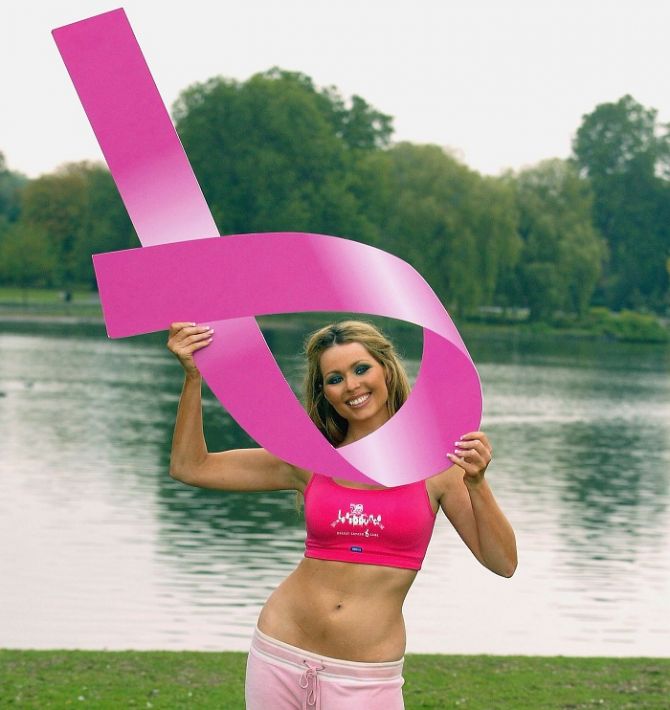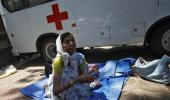Sayre basically tries to identify niche areas with unmet needs where the competition is not high and also disease education among clinicians is low. Sohini Das reports.

Photograph: Bruno Vincent/Getty Images.
Bengaluru-based venture capital-promoted Sayre Therapeutics, which is working in the area of cancer diagnosis and treatment in India by bringing in international drugs, medical devices and diagnostics, is aiming for a spot among the top five players in oncology in the next five years.
The oncology drugs business in India is estimated to be around $500 million, and is growing at a compounded annual growth rate (CAGR) of 10-11 per cent. The diagnostics market is estimated to be 7-8 per cent of the drugs business.
Sayre Therapeutics Pvt Ltd was incorporated in 2015 with venture capitalists investing around ₹24.8 crore. Earlier this year, existing investors Accel and Aarin made a follow-on investment of ₹27.5 crore in the company as venture capital and along with this, InnoVen Capital came in with ₹7 crore via venture debt.
Apart from oncology, immunology is another key therapeutic area for Sayre, which was founded by two former biotech professionals, Shukrit Chimote and Vandana Subramanian, who felt there was a gap in the niche therapy areas.
Chimote explained, "We started with a therapy for the tumour lysis syndrome (TLS), a niche area, which had one innovator company drug and a generic player. We approached the generic partner to market their product. After we launched, more players came into the segment, but we still enjoy 60 per cent market share in therapy."
TLS is a group of metabolic abnormalities that can occur as a complication during treatment of cancer.
Sayre basically tries to identify niche areas with unmet needs where the competition is not high and also disease education among clinicians is low.
"We try to create a category where we have the first-mover advantage," Chimote said.
Also, the company is trying to bring in international diagnostics at affordable rates into India. For example, a diagnostic for carcinoma of unknown primary. It is a biopsy for which the specimen is shipped to the US.
Chimote claimed Sayre made this diagnostic available at one-third the cost of the US test. "Only 2 per cent of the cancer patients need this test, but it helps doctors understand what is the source or origin of the cancer and prepare the drug cocktail accordingly," he said.
Recently, it entered into an exclusive in-licensing agreement with US-based Navidea Biopharmaceuticals for the development and commercialisation of Tc99m tilmanocept in India, an US Food and Drug Administration-approved drug for lymph node biopsy patients with clinically node negative breast cancer.
Sayre currently has eight products for blood cancer, solid cancers, cancer support care, etc and draws around 60 per cent of its revenue from drugs.












 © 2025
© 2025